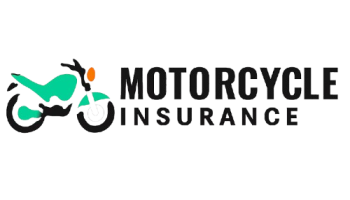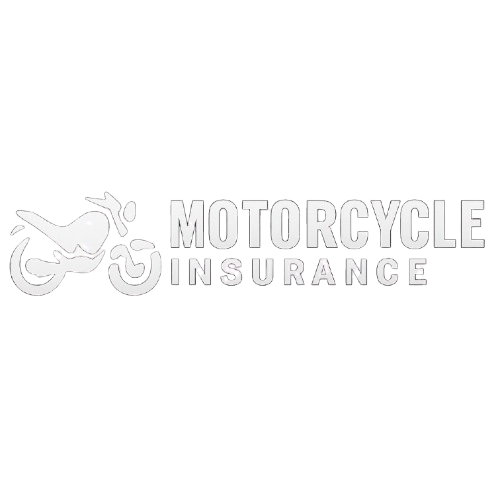Electric vs Gas Motorcycles – Insurance Cost Comparison
When it comes to choosing between electric vs gas motorcycles, one of the most overlooked yet critical aspects is how it affects motorcycle insurance, especially for riders exploring options like progressive motorcycle insurance, custom motorcycle insurance, or geico motorcycle insurance. Let’s break down the factors that influence motorcycle insurance cost, examining how electric and gas motorcycles compare, and uncover which tracks better with different riders—urban commuters, long-distance tourers, couriers, or budget-focused riders seeking cheap motorcycle insurance or the cheapest motorcycle insurance available.
1. Upfront Value & Insurance Premium Impact
Electric motorcycles typically come with a higher purchase price—ranging from $8,000 to $30,000, compared to $5,000 to $15,000 for traditional gas motorcycles. Since insurance premiums are often based on the motorcycle’s market value, a higher MSRP can translate to a higher motorcycle insurance quote and overall motorcycle insurance cost.
That said, various providers such as progressive motorcycle insurance or geico motorcycle insurance might offer different pricing structures. If you ride a custom motorcycle, insurers that specialize in custom motorcycle insurance may better factor in premium components or mods.
2. Insurance Premium Trends for Electric vs Gas Motorcycles
There’s conflicting information—but emerging trends suggest that although electric motorcycles may cost more upfront, their insurers sometimes offer competitive or even lower premiums due to reduced claim frequency and maintenance simplicity.
-
One expert breakdown notes that electric motorcycles are usually cheaper to insure, thanks to fewer mechanical failures and lower accident rates
-
Conversely, some sources highlight that the advanced components and potentially expensive battery replacements can bump premiums up
The takeaway? Insurance costs depend heavily on provider discretion, your location, and chosen coverage levels—from basic liability to robust comprehensive and collision, or specialized plans like motorcycle breakdown insurance.
3. Operational & Maintenance Cost Savings
Where electric motorcycles shine is in operational and maintenance savings—which indirectly contribute to lower ownership costs, and in turn, influence insurance valuations.
-
Fuel & electricity costs: Electric motorcycles operate at about $0.01–$0.02 per mile, while gas motorcycles average $0.09–$0.13 per mile
-
Annual savings: Riders can save $600–$1,200 per year on fuel
-
Maintenance: Electric motorcycles often slash maintenance costs by 30–50%, since they lack oil changes, spark plugs, air filters, etc.
Cheaper running costs can lead to lower insurance premiums over time—specifically for policies like motorcycle courier insurance, where uptime and predictable maintenance budgets matter.
4. Unique Insurance Considerations for Electric Riders
If you’re exploring motorcycle insurance near me, especially in markets where electric motorcycles are newer, be aware of a few nuanced factors:
-
Provider familiarity: Some insurers may not yet specialize in electric models, potentially narrowing your options or making quotes harder to obtain
-
Replacement parts: Batteries and electric motors cost more to replace, which can increase insurance coverage costs
-
Environmental incentives: In some areas, electric motorcycles benefit from government incentives or discounts—including possible reduced insurance rates
-
Registration & fees: Some regions impose EV-level registration fees even on electric motorcycles—for example, comments note $400/year in Indiana. These extras can affect the total cost of ownership and thus overall insurance budgeting.
5. Use Cases: Who Benefits Most?
Here’s a comparative look at different rider segments:
| Rider Type | Electric Motorcycle | Gas Motorcycle |
|---|---|---|
| Urban Commuter | Lower energy cost (~$0.01/mile), low maintenance, silent, eco-friendly—great for daily use | Higher fuel and maintenance cost, noisy |
| Long-Distance Tourer | Higher upfront and insurance cost, limited charging network & range | Lower initial purchase price, widespread fueling, potentially cheaper evening coverage |
| Courier / Commercial | Predictable costs, less downtime; insurance like motorcycle courier insurance could benefit | Higher service frequency, potentially higher maintenance-related breakdown claims |
| Budget Seeker (cheap/cheapest insurance) | May find lower long-term costs due to fewer claims and lower maintenance, but need to shop policies (progressive, GEICO, etc.) | Lower initial insurance with familiar markets, easier to compare motorcycle insurance quote options |
6. Choosing the Best Motorcycle Insurance
Whether you ride electric or gas, the goal remains to find the best motorcycle insurance for your needs. Here’s how to approach it:
-
Request multiple quotes – Look into progressive motorcycle insurance, geico motorcycle insurance, and niche providers for custom motorcycle insurance or courier policies.
-
Compare coverage levels – Does your policy include motorcycle breakdown insurance? What about full comprehensive protection?
-
Assess value vs cost – Use factors like how much is motorcycle insurance relative to motorcycle insurance cost, and whether lower running costs of electric motorcycles offset higher premiums over time.
-
Location-based factors – Some regions offer cheap motorcycle insurance for electric vehicles or subsidies; others may penalize with high registration fees or limited providers.
-
Update as you ride – Your mileage, location, and motorcycle updates (mods, added security, etc.) can affect your premiums—keep insurers informed to keep costs optimized.
7. Summary: Electric vs Gas—Insurance Perspective
-
Electric motorcycles often cost more to insure upfront due to higher purchase value and specialized parts.
-
However, long-term savings through reduced fuel and maintenance can offset that over time.
-
Insurance premiums for electric motorcycles can be lower in some cases, especially where insurers factor in lower claims—but provider options may be more limited.
-
Gas motorcycles have more established insurance markets—allowing riders to easily compare quotes like comfortably from progressive motorcycle insurance, geico motorcycle insurance, or generic motorcycle insurance companies—and often lower initial premiums.
-
The best motorcycle insurance depends on your use case, willingness to shop around, and whether long-term operational savings matter more to you than short-term cost.
8. Final Thoughts for Motorcycle Insurance
At Motorcycle Insurance, we understand the nuances of motorcycle insurance, whether you ride electric or gas, commuter or custom, courier or weekend warrior. Selecting between electric vs gas motorcycles isn’t just about fuel or emissions—it’s about total cost of ownership and aligning your motorcycle insurance quote with those realities.
Let us help navigate the market—explore options for cheap motorcycle insurance, motorcycle breakdown insurance, or tailored plans through progressive, GEICO, and other providers—to ensure you get the best motorcycle insurance for your ride.
Closing Words
Choosing between electric vs gas motorcycles involves balancing upfront costs, ongoing expenses, riding style, and insurance risk. With electric motorcycles offering big savings in daily costs—and growing provider familiarity—now’s the perfect time to reassess what how much is motorcycle insurance in the context of total ownership value. Get tailored quotes, analyze your usage, and ride with confidence—knowing you’re backed by the right policy at the right price.

